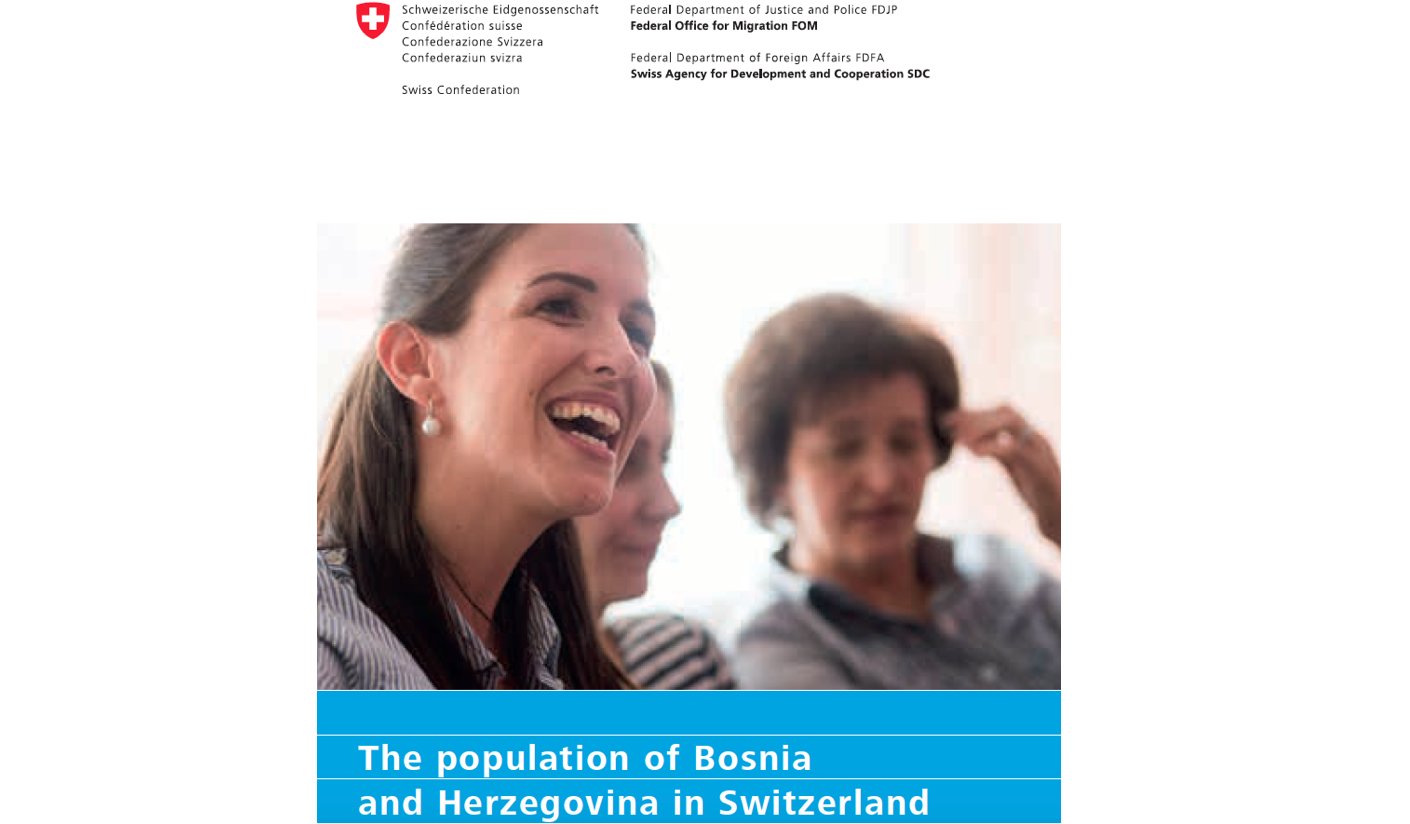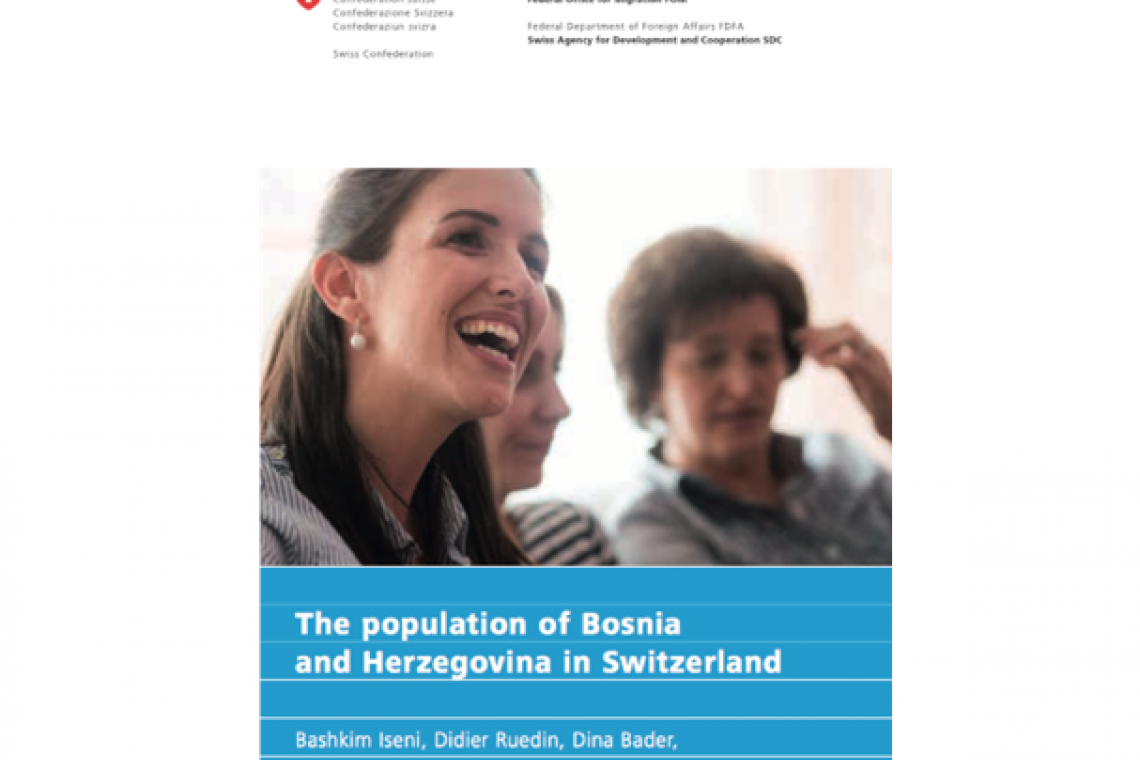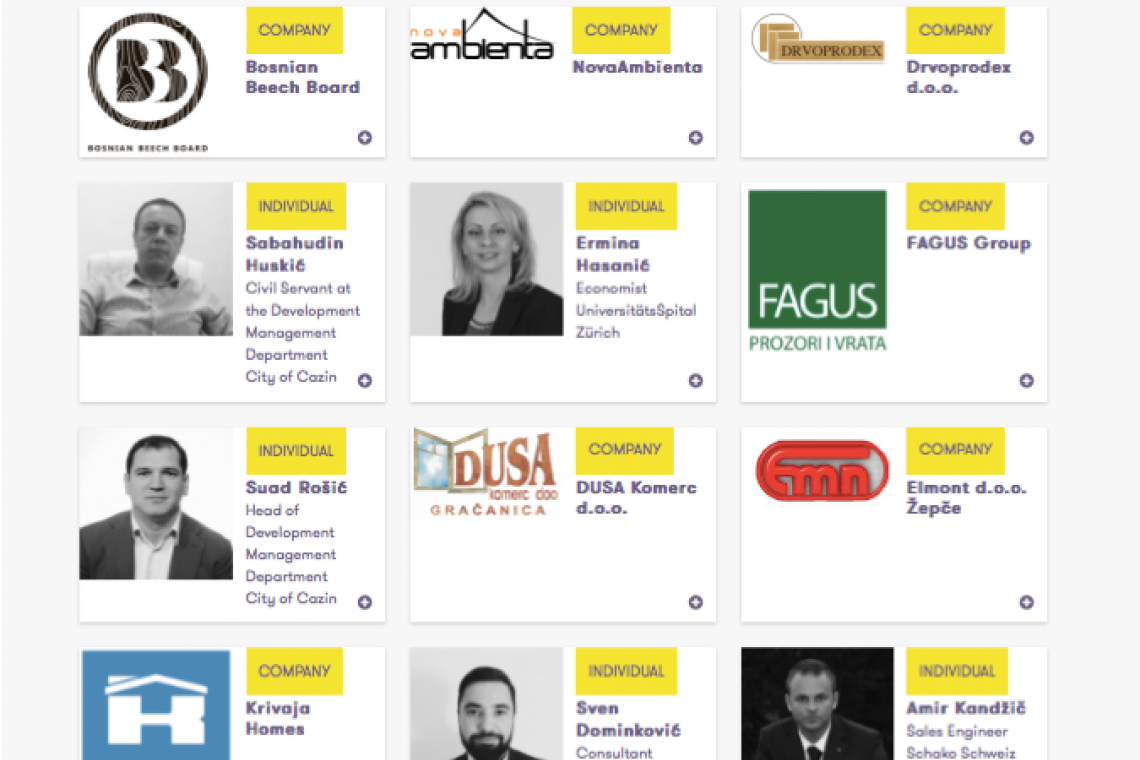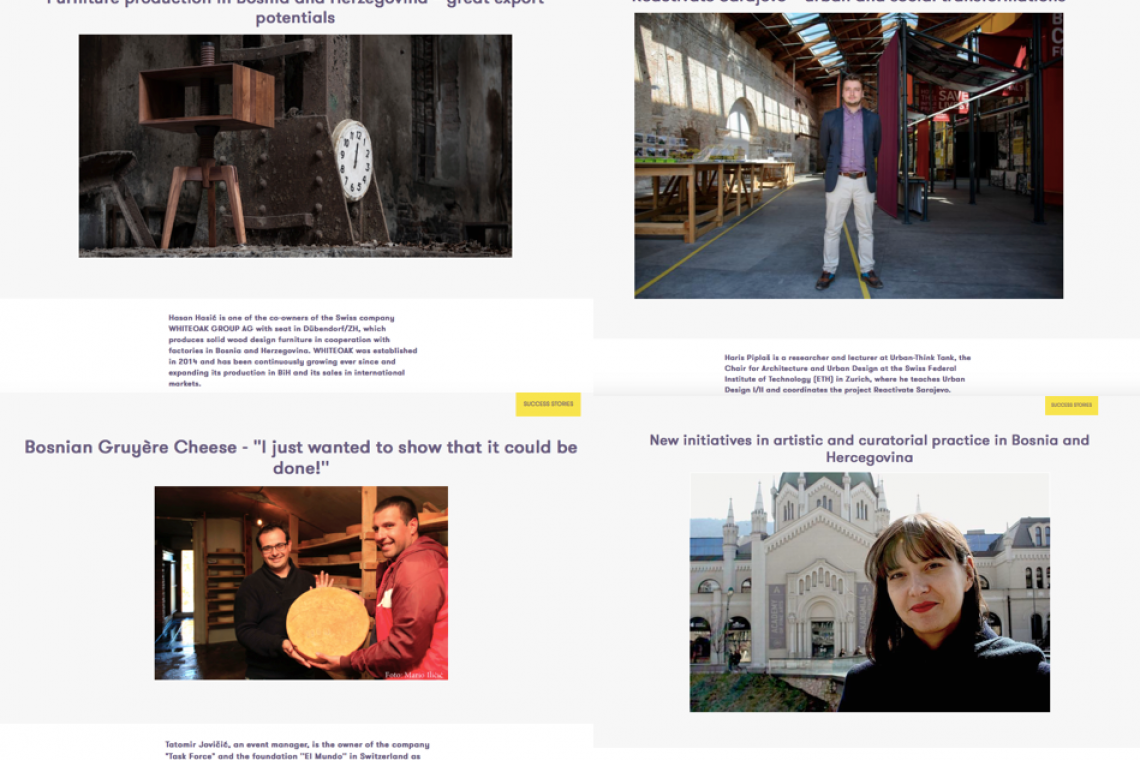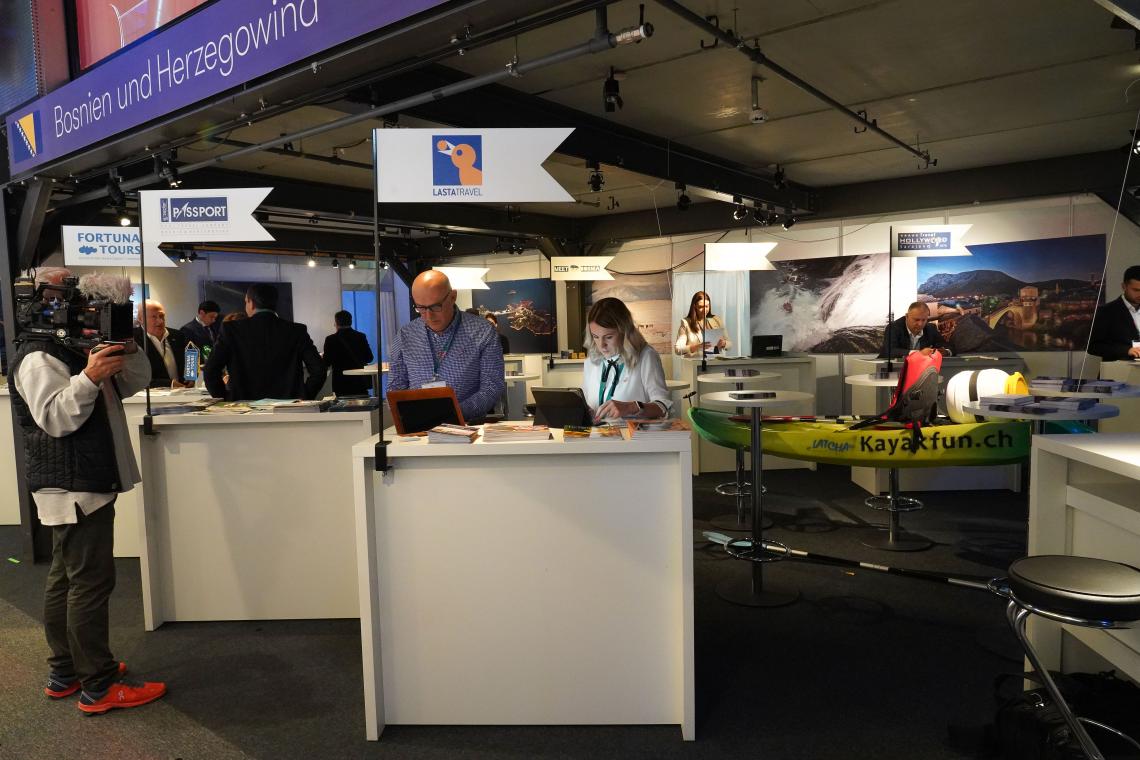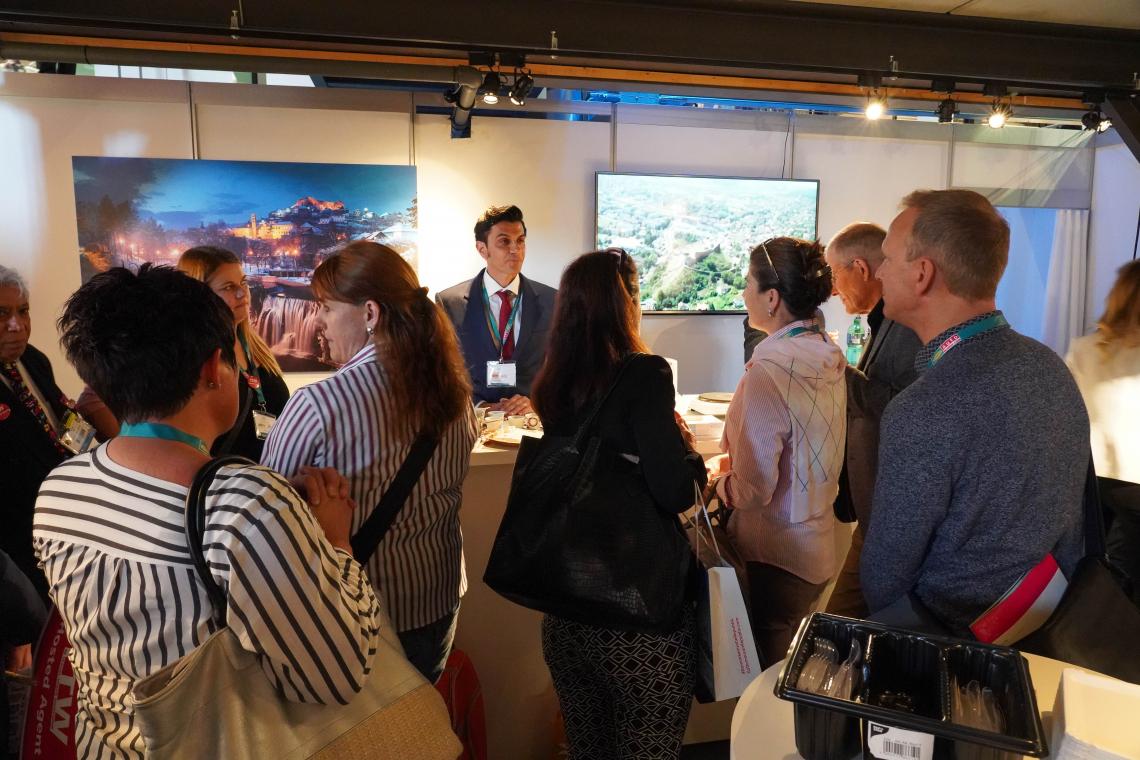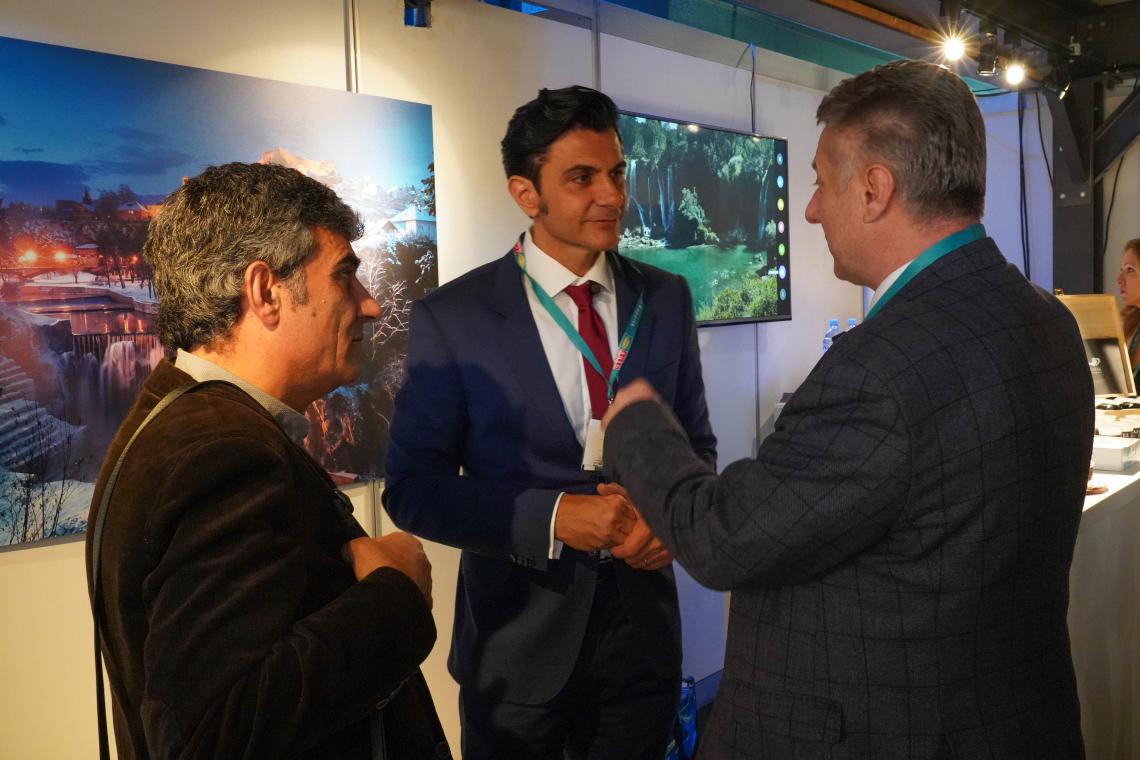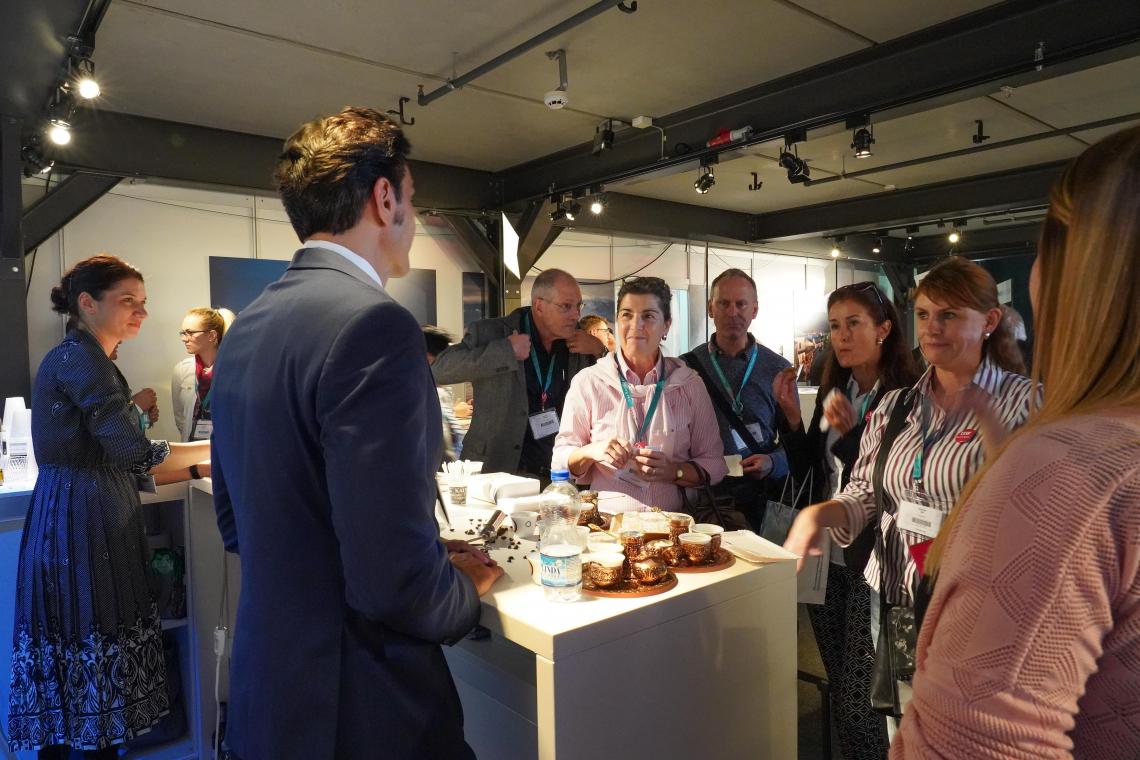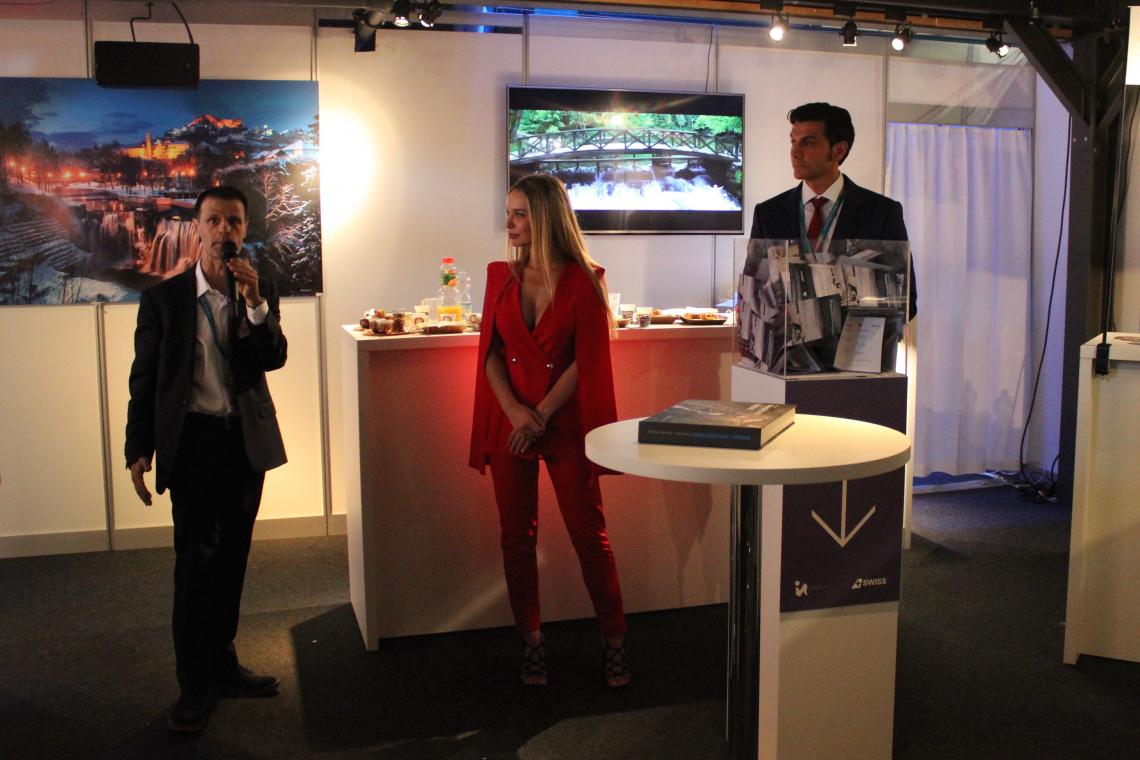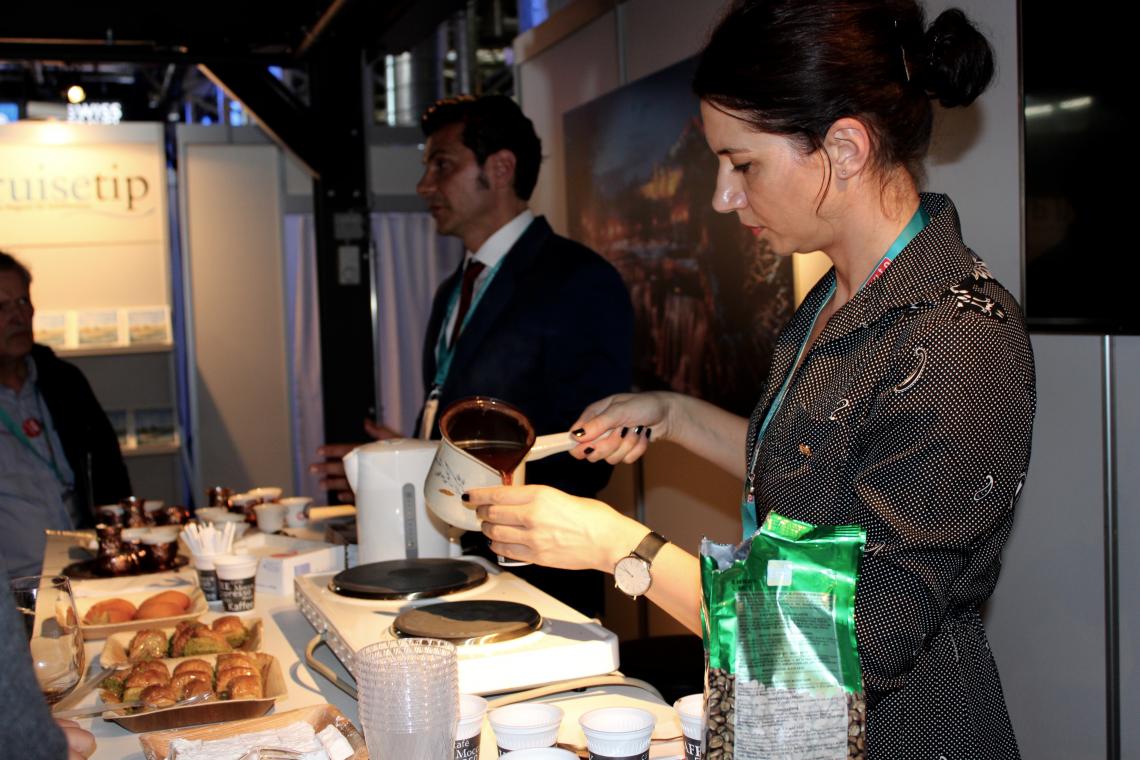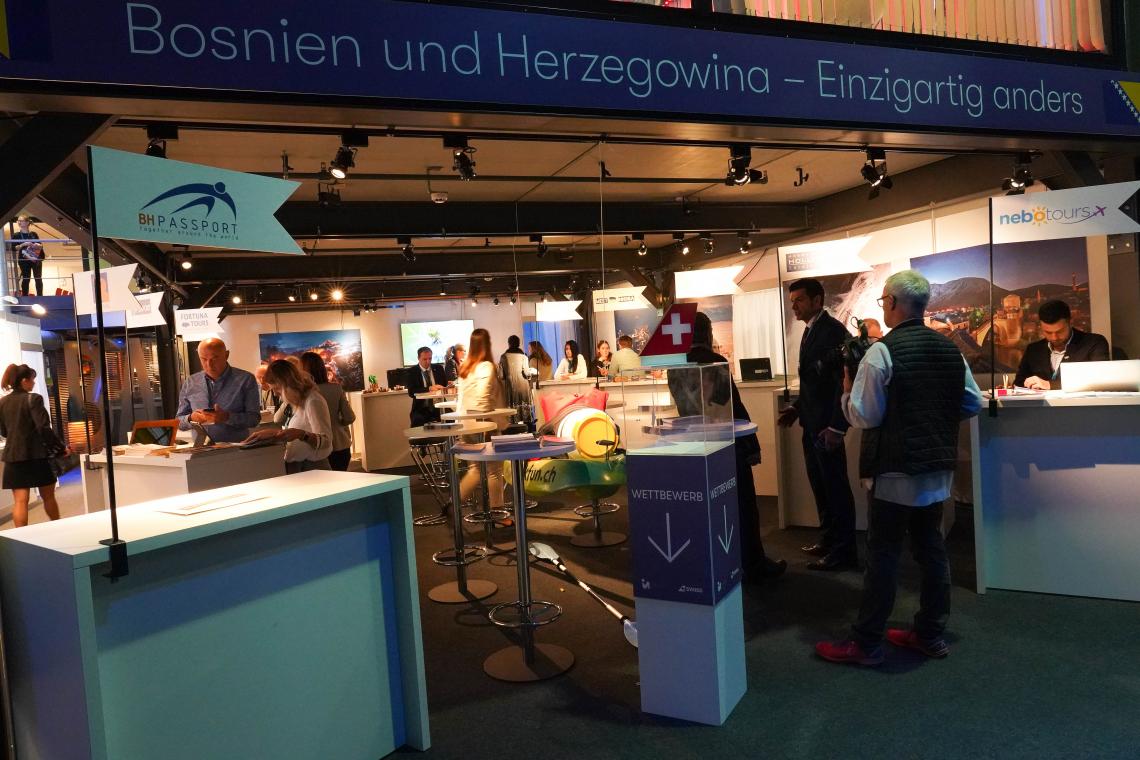Well-integrated: Emigrants from Bosnia and Herzegovina are successful in Switzerland
Author: A. Džano/Fokus.ba
When the alarming emigration of citizens and their renouncing the citizenship of Bosnia and Herzegovina is mentioned, the most frequently mentioned destination country is Germany. However, there is a large number of citizens emigrating to other countries, too.
As regards the number of citizens of Bosnia and Herzegovina with a regulated stay in Switzerland, the report of the State Secretariat for Migration (SEM) provides the relevant data. According to 2017 data, there were 30,350 citizens of Bosnia and Herzegovina with a regulated stay (temporary or permanent stay), and in 2016 there were 31,339 of them. A total of 966 citizens of Bosnia and Herzegovina obtained the Swiss citizenship in 2016.
This very topic was one of the topics discussed with Edin Dacić, a member of the Steering Board of i-platform, which supports and promotes the development of Bosnia and Herzegovina through networking between members of the diaspora of Bosnia and Herzegovina in Switzerland. This platform also gathers and exchanges information, connects actors in both countries and creates synergies. It is attempting to enable members of the Bosnian diaspora in Switzerland to actively contribute to the development of social, economic and cultural processes in Bosnia and Herzegovina.
''Emigrants from Bosnia and Herzegovina living, working and getting educated in Switzerland are very well-integrated in the Swiss system. This is also confirmed by various success stories of individuals, who are active and truly successful in different sectors. The i-platform regularly publishes success stories of individuals from the Bosnian diaspora in Switzerland, who have projects and work between Bosnia and Herzegovina and Switzerland. The goal is to present success stories to the public-at-large in order to promote existing projects and give an insight into the way in which the diaspora of Bosnia and Herzegovina in Switzerland engages in the development of Bosnia and Herzegovina. Secondly, we would also like to animate and inspire other people to start new projects that contribute to the development of Bosnia and Herzegovina'', said Dacić at the beginning of the interview with Fokus.ba.
The study The Population of Bosnia and Herzegovina in Switzerland, which was implemented by the University of Neuchâtel and based on which, among other things, the Swiss Government decided to support the establishment of i-platform, has shown that emigrants from Bosnia and Herzegovina are very well-integrated in the Swiss system, while at the same time maintaining the links to their local communities in Bosnia and Herzegovina.
''This is also confirmed by the fact that the number of emigrants from Bosnia and Herzegovina, who are planning to invest or have already invested in Bosnia and Herzegovina, is continuously growing. However, the majority of initiatives and projects launched by the diaspora are mostly implemented individually and they rarely cooperate with institutions and organisations from Bosnia and Herzegovina. Members of the diaspora frequently do not know who exactly to contact in order to obtain the necessary information regarding their inquiries. This is precisely the thing we would like to change through i-platform in order to harness the enormous potential that the diaspora constitutes for the development of Bosnia and Herzegovina. This will be achieved by connecting the actors from both countries and establishing coordinated cooperation. Mother tongue lessons are organised by organisations and religious institutions of the diaspora of Bosnia and Herzegovina and financed by the parents. They take place either at the premises of such organisations and religious institutions or classrooms of schools that are provided by the Swiss Ministry of Education. The lessons are in compliance with the curriculum drawn up by the Ministry of Civil Affairs of Bosnia and Herzegovina'', said our interlocutor.
As regards the economy, i-platform organised the first participation of Bosnia and Herzegovina in the Swiss Travel Day in Zurich in cooperation with the Foreign Trade Chamber of Bosnia and Herzegovina, Chamber of Commerce of Republika Srpska and the company SEE Investment Solutions.
The Swiss Travel Day that Bosnia and Herzegovina participated in
''This is the most important event for the tourism industry in Switzerland and at the same time it is the main platform for the Swiss outgoing tourism. The key goals of this initiative included improved economic cooperation, promotion of Bosnia and Herzegovina as a destination country and presentation of services of travel agencies from Bosnia and Herzegovina in the Swiss market. Ten travel agencies from Bosnia and Herzegovina were represented at the stall of Bosnia and Herzegovina. They presented their services and used the occasion to enter into direct contact with potential Swiss partners and key actors from the Swiss tourism industry. In addition to our partners, this initiative was also supported by Adela Smajić, a media personality and one of the most popular representatives of the diaspora of Bosnia and Herzegovina, Jörg Heeskens, the author of the travel guide Bosnia and Herzegovina in the Palm (Bosnien und Herzegowina auf der Hand) and Walter Kunz, the Head of the Tourism Association of Switzerland'', said Dacić.
This type of networking has been extremely efficient, while at the same time, minimal resources of i-platform were used, and it contributed to the success of the first participation of Bosnia and Herzegovina in the Swiss Travel Day.
''This is also confirmed by the extraordinary compliments we got from participants, organisers of the event and in particular from the representatives of Swiss outgoing agencies, who got to know the beauty and enormous potential that this destination country offers'', said Dacić.
A Business Forum focusing on the housing sector was organised in Zurich in 2017 and 15 companies from Bosnia and Herzegovina and 13 companies from Switzerland participated in it.
''The goal was to establish initial contacts between producers from Bosnia and Herzegovina and potential Swiss buyers during B2B meetings. The Business Forum was organised in cooperation with the Foreign Trade Chamber of Bosnia and Herzegovina, Chamber of Commerce of Republika Srpska, the Swiss Import Promotion Programme, SIPPO, company SEE Investment Solutions and the project Diaspora for Development. It was supported by the Swiss Agency for Development and Cooperation, SDC, and it was implemented in partnership with the Ministry of Human Rights and Refugees of Bosnia and Herzegovina and the United Nations Development Programme. A SIPPO advisor was, among other things, leading preparatory workshops for companies from Bosnia and Herzegovina, which were held in Sarajevo and Banja Luka in October 2017'', said Dacić.
Such business meetings are planned to continue next year in order to improve the match-making activities between Switzerland and Bosnia and Herzegovina and strengthen the economic cooperation between the two countries.
''In 2019, we are planning to hold two additional events focusing on the IT sector and metal processing industry. We also have various projects in the field of culture. The current exhibition entitled ''Design Lausanne/Sarajevo'', which will be held from December 07 to 22 at the gallery Kamala in Lausanne, is worth mentioning. Five young designers from Switzerland and Bosnia and Herzegovina will present their works focusing on jewellery, textile and ceramics. As regards education and science, at the initiative of Zoran Talić, the President of the Parliament of the City of Banja Luka, we visited Banja Luka in October, together with Philipp Reber, who is a Swisscontact advisor and dual education expert. Reber was tasked with the presentation of the best practices from Switzerland and gathering all relevant factors and initiating a dialogue on the dual education at Radnički univerzitet in Banja Luka'', said Dacić at the end of the interview with Fokus.ba.
The article was originally published on Fokus.ba.

